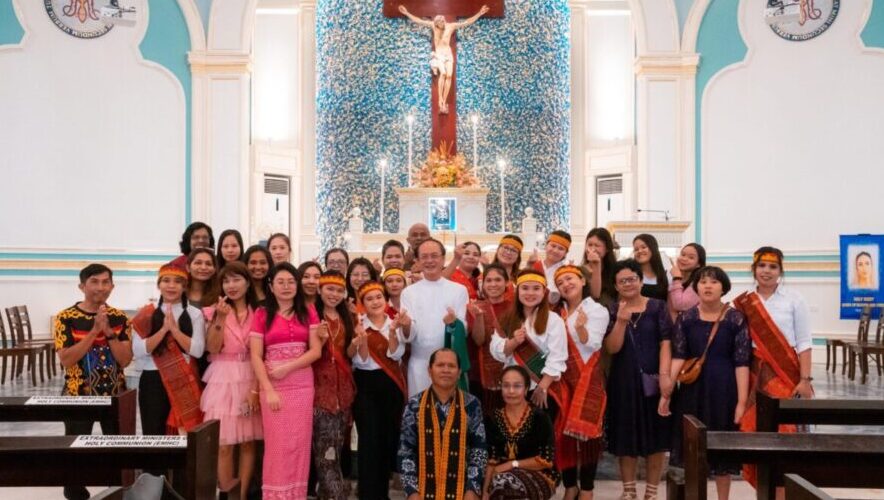Standing With Our Migrant Brothers and Sisters: The 109th World Day of Migrants and Refugees
The World Day of Migrants and Refugees can be traced back to 1914 when Pope Pius X declared the first World Day of Migrants. Since then, the Catholic Church has continued to dedicate this special day to migrants and refugees, emphasising our collective responsibility to support and advocate for those who are forced to leave their homelands due to various hardships.
Fr. Paul Kee, in his homily, delves into the heart of the matter, breaking it down into four essential parts.
Who Are Migrants?
Migrants are individuals who move from one place to another for various reasons. Some seek better job opportunities to improve their economic situation, while others aim to escape cultural pressures for social reasons. There are those who flee racial persecution, human rights abuses or conflict for political reasons. Environmental factors, such as climate change and natural disasters, can also push people to find safer places to live. Some are motivated by the pursuit of higher education or specialised training, and others become refugees when they are forced to leave their home countries due to persecution, violence or conflict.
Why Do Catholics Celebrate Migrant Sunday?
The celebration of Migrant Sunday raises awareness about the challenges migrants and refugees worldwide face. It’s a day to stand with our migrant brothers and sisters, highlighting the Catholic Church’s dedication to social justice and the rights of migrants and refugees. This day acknowledges the dignity of all people, no matter their beliefs, and encourages prayer and reflection on Gospel values like love, compassion and hospitality.
Who Are the Migrant Groups in Malaysia?
In Malaysia, people from other countries live here for various reasons. Some come for jobs they can’t find back home (foreign workers), while others seek safety due to problems like conflicts or unfair treatment (asylum seekers and refugees). Some arrive to study or work for better opportunities (students and expatriates). Sadly, there are also those forced into illegal activities against their will (human trafficking victims). Additionally, some don’t have the right papers to stay legally and face many challenges (undocumented migrants).
What Can Catholics Do for Our Migrants?
Fr. Paul urges us to turn our compassion into action. You can help by supporting organisations that provide legal aid to migrants, refugees and asylum seekers. Education and language training are essential to help them integrate better, and your volunteer work can make a significant difference. Supporting healthcare initiatives that serve migrants or making financial donations can also provide crucial resources to aid them in their journey towards a better life.
Fr. Paul ended his homily with a heartfelt prayer from Pope Francis’s letter to migrants and those who work with them.

God, Father Almighty,
grant us the grace to work tirelessly
for justice, solidarity, and peace,
so that all Your children may enjoy
the freedom to choose whether to migrate or to stay.
Grant us the courage to denounce
all the horrors of our world,
and to combat every injustice
that mars the beauty of Your children
and the harmony of our common home.
Sustain us by the power of Your Spirit,
so that we can reflect Your tender love
to every migrant whom You place in our path,
and to spread in hearts and in every situation
the culture of encounter and of care.
Amen.













